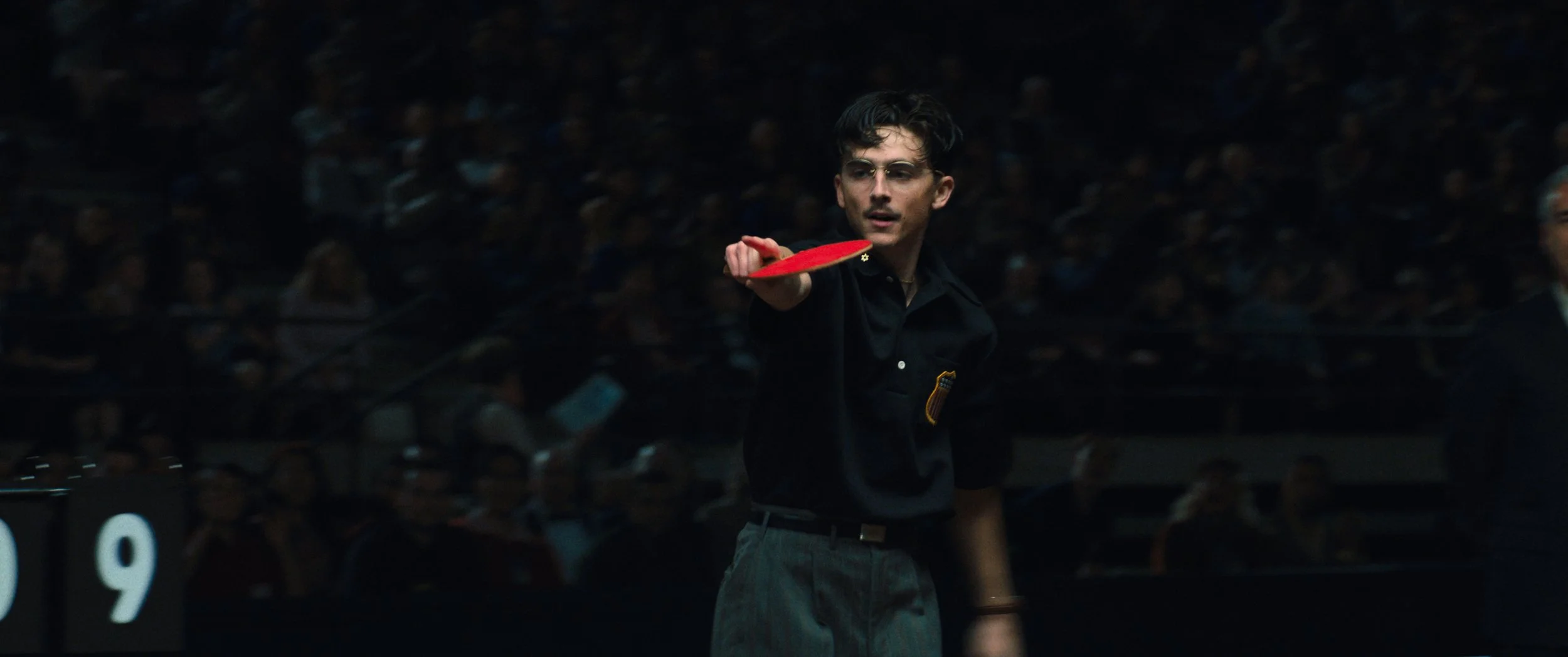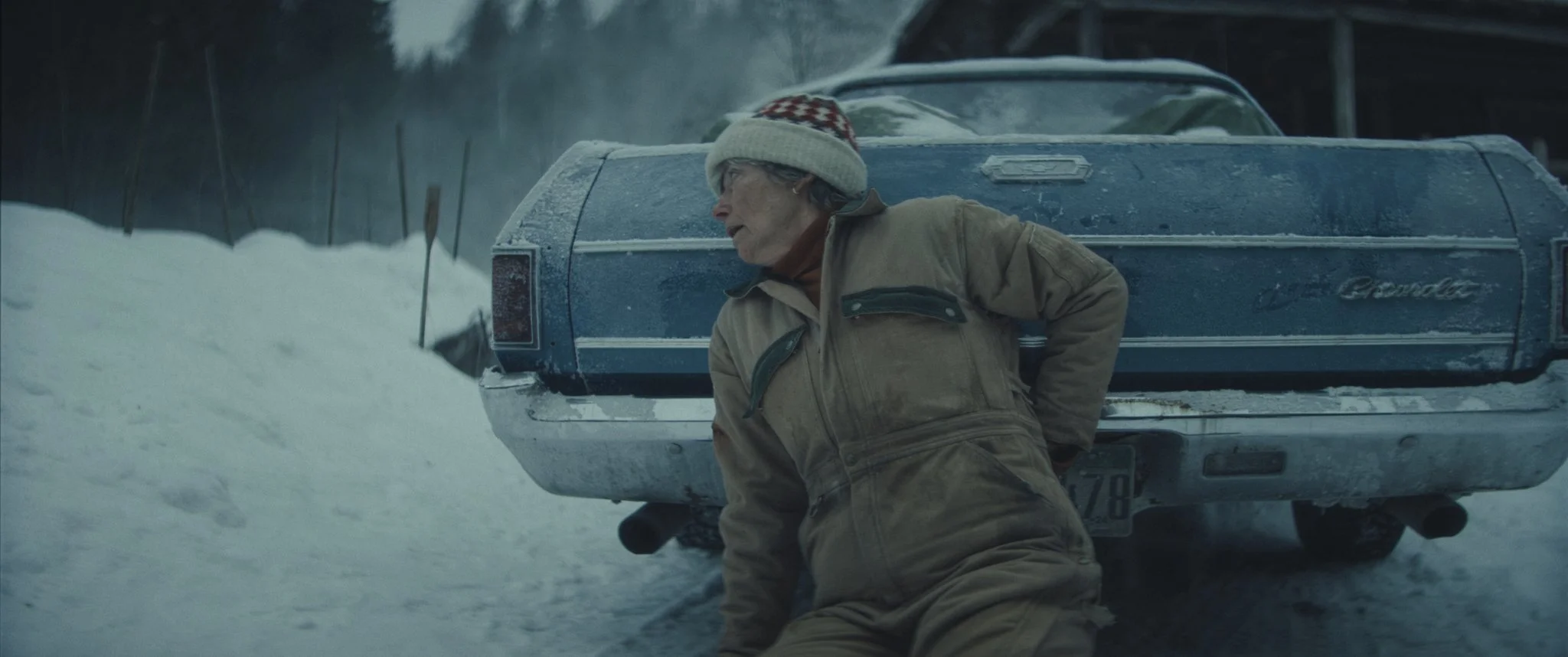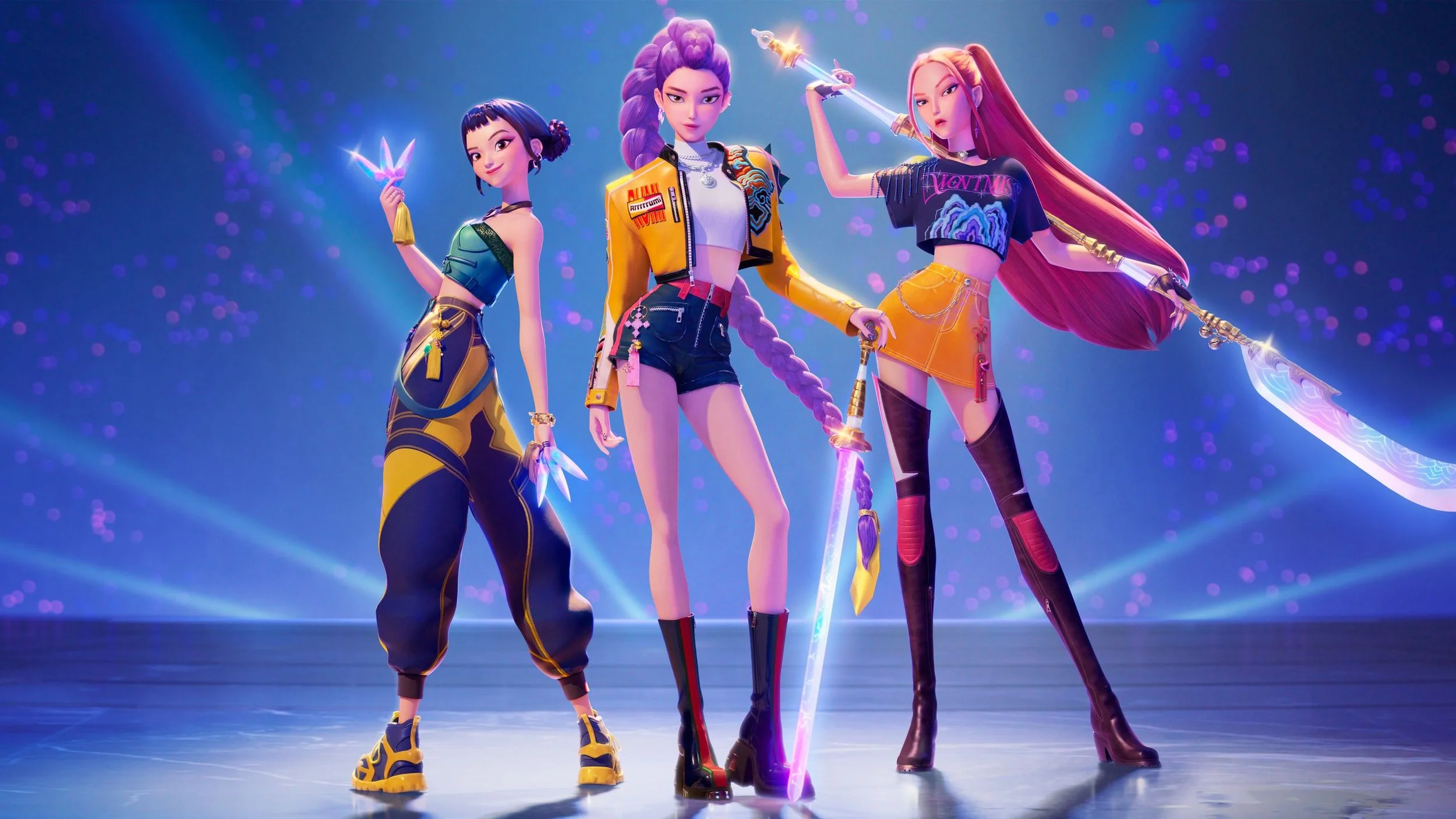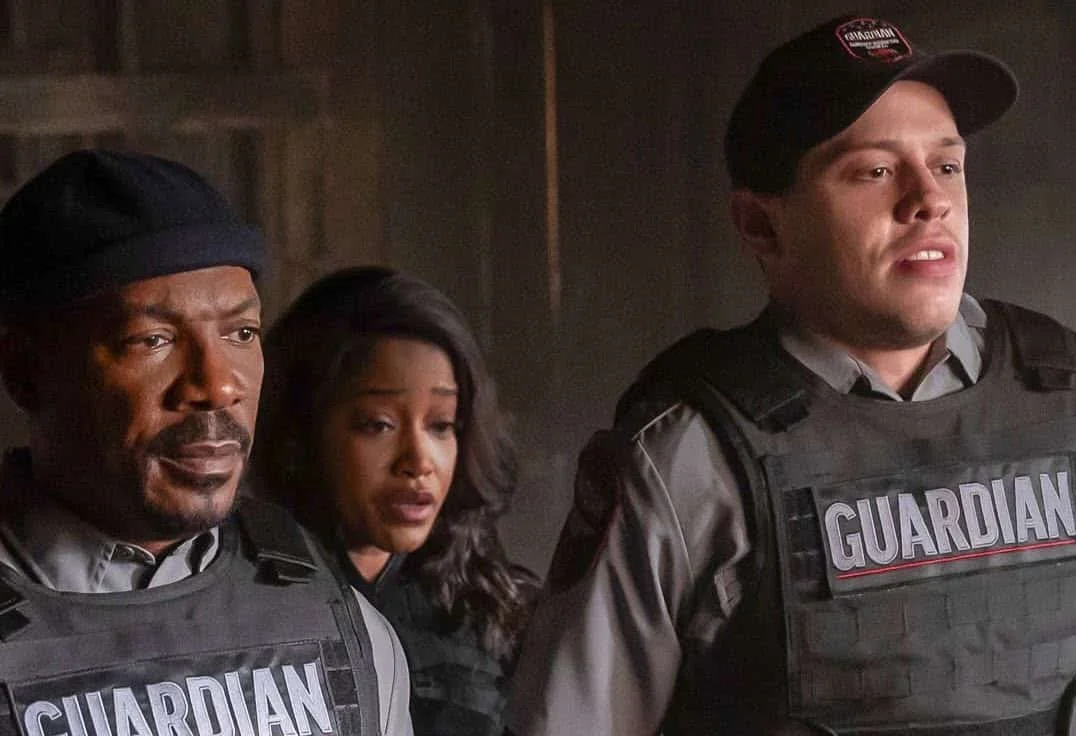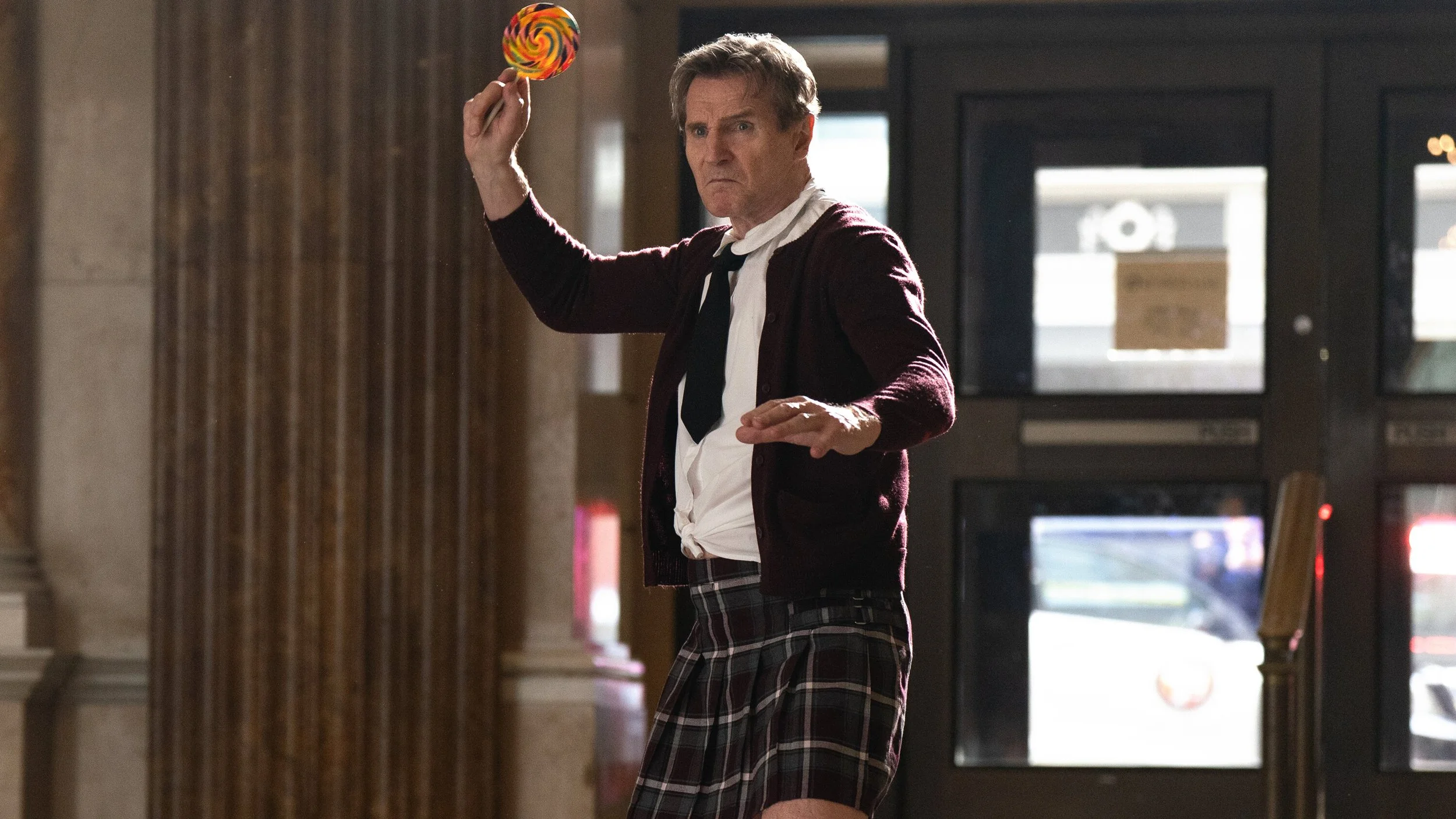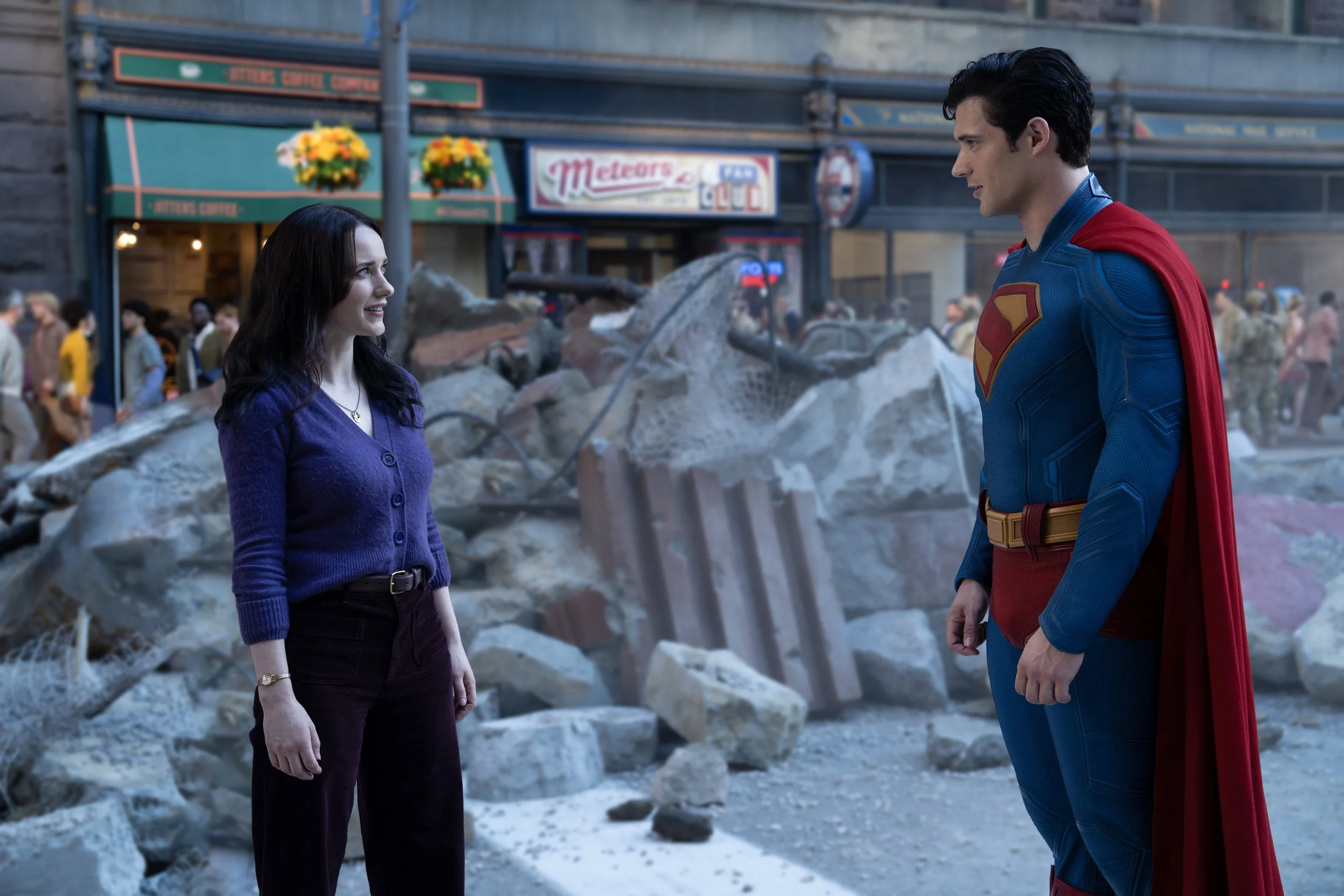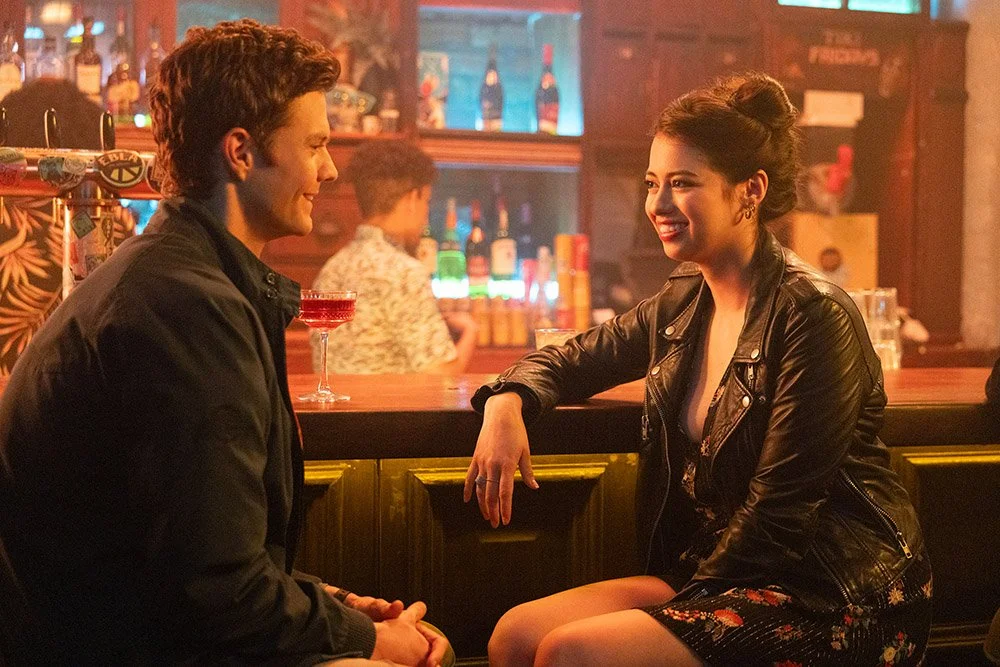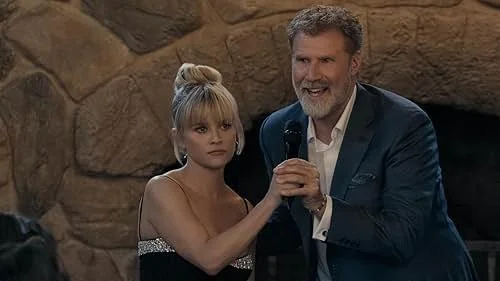Marty Supreme
There’s a particular kind of exhaustion that comes from watching movies that want to be important but never quite earn it. Prestige without pulse. Ambition without blood. For the better part of the last few years, cinema has been stuck in that loop—well-made, well-acted, utterly forgettable. Marty Supreme breaks that cycle like a fist through glass. Josh Safdie’s film doesn’t politely ask for your attention; it hijacks it. This is a movie that hums, rattles, and eventually roars. It’s the first film in a long time that feels genuinely great—not because it aims for greatness, but because it refuses to settle for anything less than obsession.
The Smashing Machine
Benny Safdie’s solo directing debut is a choice, not a gimmick. The Smashing Machine leans fully into a 90s camcorder, vérité vibe—blown-out whites, rolling shutter, clipped dialogue, the occasional warble in the tape. It’s not nostalgia; it’s a design principle. The film looks and sounds like the decade it’s interrogating, and that technical conviction is its sharpest edge.
Dead of Winter
Grief is the marrow of Dead of Winter, and it’s where the film is at its most convincing. This isn’t just another snowbound survival tale—it’s a study of how loss reshapes instinct, how silence can weigh more than dialogue, and how holding on to memory can be both an anchor and a burden. That emotional core is where the film thrives.
K-Pop Demon Hunters
There are movies that catch you off guard—not because of a shocking twist or groundbreaking visuals, but because they deliver an experience you didn’t know you needed. K-Pop Demon Hunters is exactly that kind of film. Going in, I wasn’t a K-pop fan. In fact, I’ve never listened to a full K-pop track (save for BTS’ Dynamite) in my life. But within minutes, I was caught in the dazzling neon vortex of this movie, and by the end, I realized it had done something remarkable: it made me care deeply about three global pop stars who moonlight as defenders of humanity.
The Pickup
In the end, The Pickup feels like a decent weeknight watch rather than a must-see event. It’s carried more by the actors than the script or direction, with KeKe Palmer once again proving that even in a role written without much nuance, she can bring authenticity and heart. While not a disaster by any stretch, it’s a film that leaves you wishing its creative risks matched the talent of its cast.
The Naked Gun (2025)
From the opening scene—where Neeson inexplicably dons a schoolgirl disguise to thwart a bank robbery—the film sets its frenetic, absurd tone. The jokes land with gleeful abandon: pratfalls, visual gags, meta-references that wink at fans, and a shameless dose of slapstick. The action sequences blur into comedic chaos—electric cars gone haywire, nightclub brawls, and a climactic emergency at a mixed martial arts match coincide with the unveiling of the film’s high-stakes tech villainy. It’s silly, absurd, full of momentum—and it works.
Superman
Under the direction of James Gunn and a screenplay he co-wrote, Superman delivers what feels like a new dawn for the DC Universe. David Corenswet plays Clark Kent/Superman with an earnest optimism and boy-scout charm that he infuses with real emotional depth. Rachel Brosnahan brings Lois Lane to life as sharp, driven, and thoroughly modern—and the chemistry between them crackles with real heat. Seriously, these two look and feel like they belong together, making this not just a good superhero movie, but a damn good movie overall—possibly the best of the year so far.
Ballerina
Ballerina maintains a thematic layer in the John Wick franchise—one where violence is not only physical but artistic. It explores how tradition, discipline, and tragedy shape a warrior. Ana de Armas delivers a performance brimming with precision and heart. The film stakes are smaller than a global super-villain showdown, but they feel intimate, lived-in, and compelling.
Lilo & Stitch (2025)
The film smartly doesn’t try to replicate the cartoon’s zany energy beat-for-beat. This is a more contemplative, grounded take. Some viewers may find the pacing slower, but that slowness gives space for quieter, more meaningful character beats. You feel Nani’s exhaustion. You feel Lilo’s isolation. You feel the weight of trying to hold a family together with duct tape and desperation.
The Thunderbolts*
Could it suffer from franchise familiarity? Sure. It borrows structural beats from team‑up films of the past. But this time, the Marvel machine feels intentional, not rote. There’s murder, betrayal, redemption, and even a psychological twist hinting at upcoming Avengers split arcs.
G20
Slick, smart, and fueled by a powerhouse performance, G20 is exactly what you’d want from a modern political action thriller. It’s fast, fun, and anchored by one of the greatest living actors proving once again that there’s no role too large, no challenge too intense, and no genre she can’t conquer. Viola Davis isn’t just the President in G20—she’s the whole damn movie.
Novocaine
Quaid brings his full range to the role, flexing both his comic timing and increasingly impressive dramatic chops. Between Novocaine and his equally strong turn in Companion, he has somehow managed to dominate the first half of 2025 with two wildly different but equally captivating performances. In this film, he gets to be charming, goofy, vulnerable, and convincingly heroic, all without losing the character’s everyman appeal.
The Electric State
Set in a retro‑futuristic alternate‑1990s, The Electric State begins with a lonely orphaned teen driving across a desolate landscape alongside a mysterious robot in search of her long‑lost younger brother, with the help of a smuggler and his goofy mechanical sidekick. All the pieces are in place for an emotionally rich, odd‑couple road epic. Instead, what plays out is a visually polished, high‑budget spectacle that fails to ignite.
Zero Day
Netflix’s new miniseries Zero Day is a gripping and thought-provoking thriller that raises pressing questions about truth, control, and the very fabric of reality in an era dominated by conspiracy and uncertainty. At its core, the series forces viewers to examine whether the crises tearing the world apart are the work of external forces beyond our grasp, or whether we ourselves are complicit in their creation. It’s a timely, relevant, and unsettling watch that refuses to provide easy answers, making it one of the most compelling shows of the year.
Captain America: Brave NewWorld
What’s most frustrating is how Brave New World fails to justify its own existence. It doesn’t push the MCU forward. It doesn’t deepen the character of Sam Wilson in any significant way. And it certainly doesn’t offer anything we haven’t seen, multiple times, in earlier films. At this point, even the structure of these movies feels templated—there’s no spontaneity, no surprises, and no pulse.
Love Hurts
Love Hurts—and so does sitting through it.
With two Oscar winners at its center, Ke Huy Quan and Ariana DeBose, this slick, high-concept action-romcom had every reason to work. On paper, it sounds like a pulpy thrill ride: a former criminal-turned-realtor gets pulled back into the life he thought he left behind when his old partner resurfaces with a cryptic warning, and his estranged, crime-lord brother shows up looking for blood. Throw in a romantic subplot, a ticking clock, and a few neon-lit fight scenes, and you’d expect something along the lines of Bullet Train or Nobody—punchy, playful, and packed with energy. Instead, Love Hurts is a flat, muddled mess that fails to deliver on any of its genre promises.
Companion
Companion is a sleek, unnerving sci-fi thriller that wears its themes on its sleeve while keeping its audience off balance from start to finish. With an ensemble cast led by Yellowjackets breakout Sophie Thatcher and Oscar winner Jack Quaid, the film unfolds like a high-tech morality play dressed as a cabin-in-the-woods mystery.
You’re Cordially Invited
With stars like Reese Witherspoon and Will Ferrell leading the charge, You’re Cordially Invited sets the stage for what should be a crowd-pleasing, laugh-out-loud romantic comedy. Unfortunately, despite its high-profile cast and a fun premise, the film ends up being a forgettable and surprisingly flat experience that never lives up to its potential.
The Recruit - Season 2
In its sophomore season, The Recruit finally seems to find its footing, delivering a sharper, more confident narrative that capitalizes on its strengths. After a promising but uneven debut season, the show has refined its tone, balancing action, humor, and suspense in a way that feels more natural. Season 2 is more unpredictable, more polished, and ultimately more engaging, making it a significant step up from its predecessor.
One of Them Days
Directed by Lawrence Lamont and written by Syreeta Singleton, One of Them Days is a tightly paced, effortlessly funny buddy comedy that takes a familiar premise—a race against time to come up with rent money—and elevates it with sharp writing, electric performances, and genuine heart.

